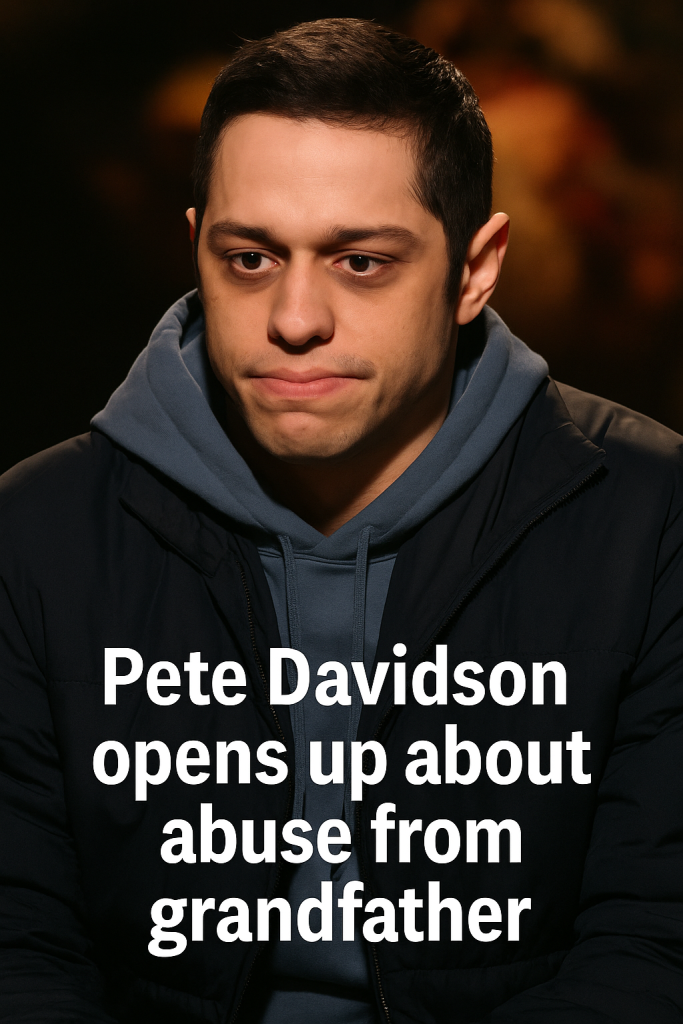In a candid and deeply personal revelation, comedian and actor Pete Davidson has opened up about a troubled relationship with his grandfather, describing years of abuse that have left lasting scars. During a recent interview, Davidson shockingly expressed that he is “thrilled” to see his grandfather dying, shedding light on the complex emotions tied to their painful family history.
Known for his raw honesty and vulnerability, Pete Davidson did not shy away from discussing the dark side of his upbringing. The star revealed that his grandfather subjected him to emotional and possibly physical abuse during his childhood—a trauma that has profoundly affected his emotional well-being. Davidson’s frank comments have sparked significant attention on social media, with many expressing shock and empathy for the actor’s experience.
“I want my grandfather to die slow,” Davidson stated plainly, capturing the anger and hurt that have lingered for years. He explained that unlike the public image of family harmony, his relationship with his grandfather was marked by pain and fear. “There’s a lot of resentment when someone who was supposed to protect you does the opposite,” he remarked.
While many could interpret such sentiments as harsh, Davidson’s remarks highlight the long-term impact of childhood abuse and the complicated feelings victims often wrestle with toward their abusers. Experts in trauma and abuse emphasize that survivor anger—even wishing ill on an abuser—can be a natural response to unresolved trauma and unmet justice.
Davidson’s decision to speak out publicly is part of a broader trend among celebrities using their platforms to raise awareness about abuse and mental health struggles. He has previously been open about his battles with depression, anxiety, and PTSD, connecting his past trauma to his overall mental health journey. By exposing this abuse, Davidson aims to break the stigma surrounding familial violence and encourage others to confront similar issues.
The actor’s statements have sparked a vigorous conversation on social media, with fans and mental health advocates applauding his bravery while also calling for compassion in understanding the complex dynamics of abusive relationships. Many have shared stories of their own experiences with toxic relatives, underscoring how this is a reality affecting countless individuals worldwide.
It remains unclear how Davidson’s family has responded to these revelations. However, the comedian has consistently positioned himself as a figure committed to honesty about his struggles, using humor and openness as tools for healing. His fearlessness in discussing such personal pain continues to resonate deeply with audiences who find hope and solidarity through his words.
In a world where abuse within families often remains hidden behind closed doors, Pete Davidson’s candid disclosures serve as a powerful reminder of the importance of confronting uncomfortable truths. His story not only illuminates the dark consequences of abuse but also exemplifies courage in the face of personal suffering.
As Davidson continues to navigate his healing journey, his willingness to “say the things people don’t talk about” is inspiring others to break their silence and seek help. His voice adds a vital chapter to the ongoing dialogue about trauma, resilience, and the long road toward forgiveness and peace.



